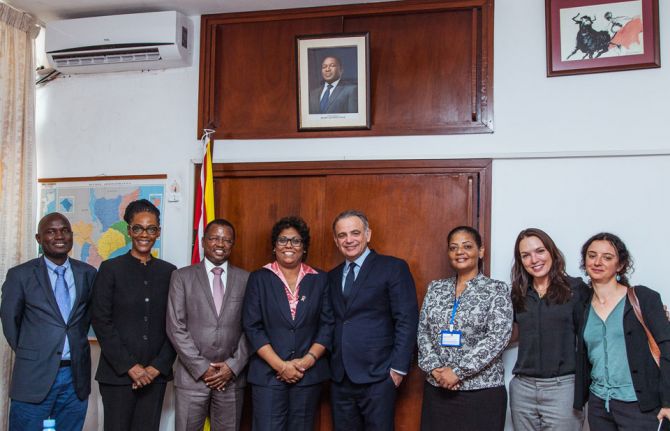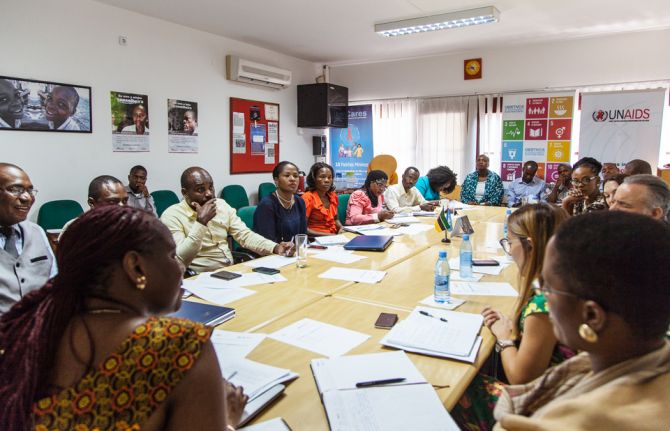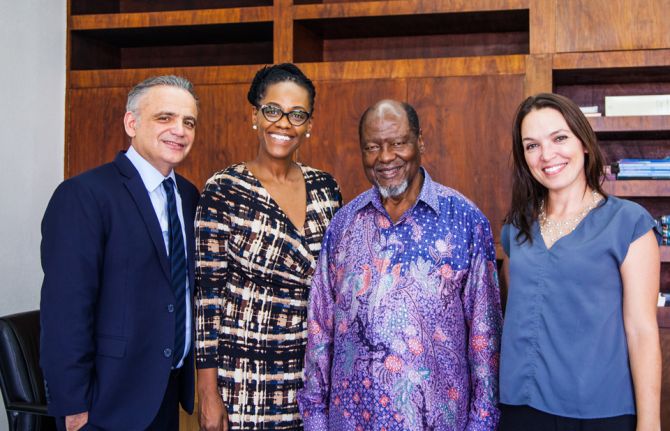



Feature Story
Mozambique: stepping up to Fast-Track its AIDS response
07 March 2017
07 March 2017 07 March 2017During a visit to Mozambique on 6 and 7 March, UNAIDS Deputy Executive Director Luiz Loures applauded the country’s efforts to Fast-Track its AIDS response. His visit took place at a critical moment for Mozambique, which is determined to accelerate its response to HIV with the support of the Global Fund to Fight AIDS, Tuberculosis and Malaria and the United States President’s Emergency Plan for AIDS Relief, whose representatives Mr Loures met.
Mozambique is among the countries most affected by the AIDS epidemic. HIV prevalence among adults was estimated to be 10.6% in 2015, with approximately 1.5 million people living with HIV. Nonetheless, and despite the challenges the country faces, Mozambique stands out as an example of how progress can be achieved through political commitment and international support. The coverage of antiretroviral therapy and HIV testing and counselling has increased considerably during the past years. By mid-2016, approximately 892 000 people living with HIV were receiving antiretroviral treatment, compared with around 308 000 people in 2012. New HIV infections among adults have been reduced, by 40% from 2004 to 2014.
In a meeting with the Minister of Health, Nazira Karimo Vali Abdula, Mr Loures congratulated the government for its significant progress. He recognized that while challenges remain, the country’s experience constitutes a showcase for the world of how to respond to the AIDS epidemic. The minister underlined the relevance of UNAIDS as a key coordinating platform for the international community and praised its global strategic leadership.
An important meeting during the trip was with the Mozambican Civil Society Platform for Health (PLASOC-M), which warmly welcomed him to the civil society meeting, held weekly at the UNAIDS country office. PLASOC-M unites local organizations helping to ensure close linkages between the national health system and the grass roots. After a productive exchange, Mr Loures pledged to back their efforts and to advocate on their behalf. He underlined the particular importance civil society has for populations that are hard to reach and often left behind, such as adolescent girls, sex workers, lesbian, gay, bisexual, transgender and intersex people, migrants, injecting drug users and prisoners.
The former President of Mozambique and Vice-Chairman of the Champions for an AIDS-Free Generation in Africa, Joaquim Alberto Chissano, received Mr Loures at his foundation’s headquarters. In the discussion between them, the need to revitalize primary HIV prevention, especially among youth, and the need to strengthen coordination and collaboration among lusophone countries in the HIV response, were highlighted.
Mr Chissano also highlighted the important role of private companies in the revitalization of HIV prevention, especially among youth, and pledged his continued support to this important issue.


